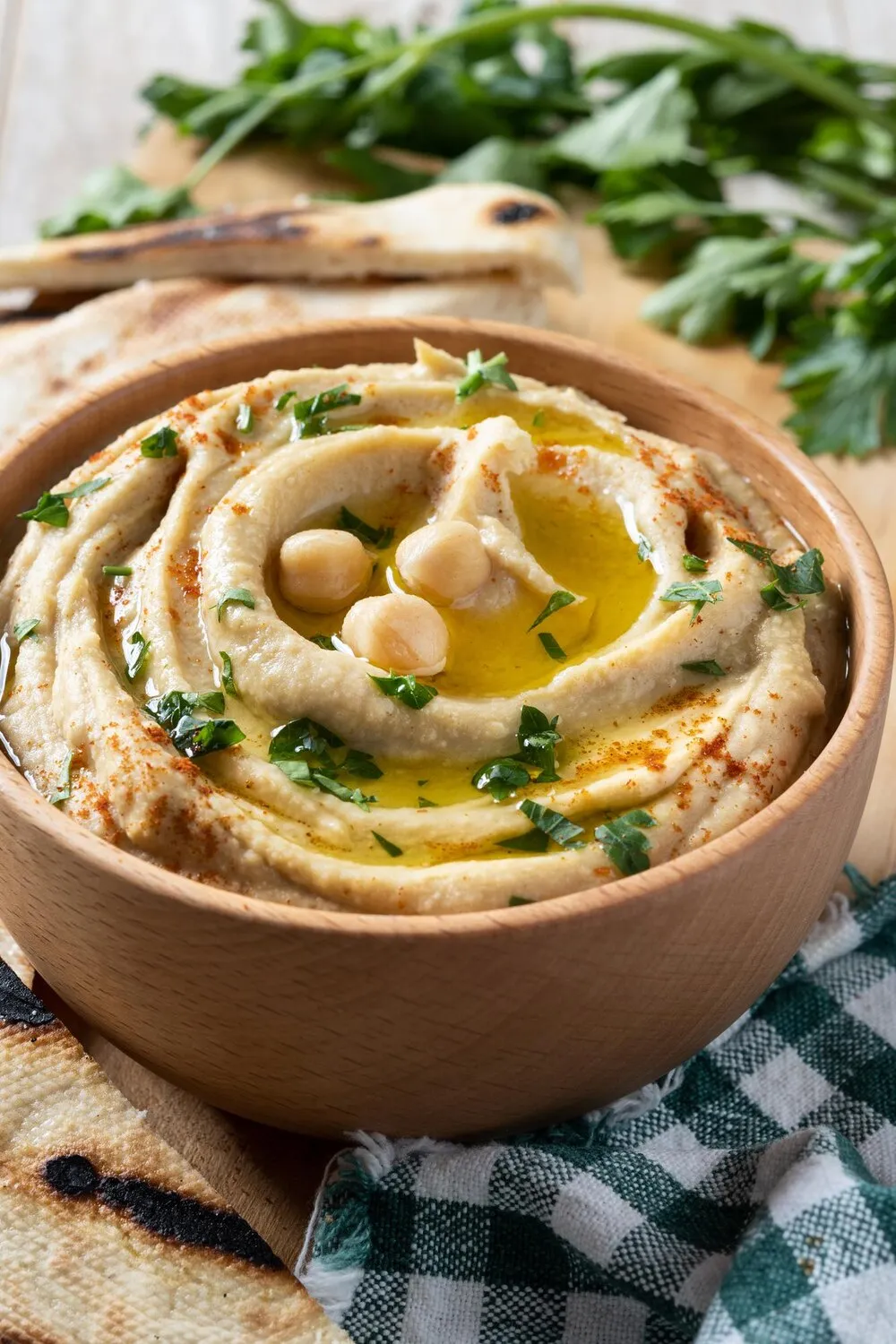
Octopus Santorini
Grilled octopus served with Santorini fava, red onion, capers, and lemon.
Nutrition Facts
* The % Daily Value (DV) tells you how much a nutrient in a serving of food contributes to a daily diet. 2,000 calories a day is used for general nutrition advice.
Octopus has been a staple of the Greek diet since ancient times. Archaeological evidence from Minoan civilization shows octopus depicted in pottery and frescoes. Its accessibility in the Aegean Sea and relative ease of preparation have made it a ubiquitous part of Greek cuisine. Fava, traditionally grown on Santorini, has also been a crucial element of Santorinian agriculture for centuries, providing a vital protein source.
Octopus Santorini is deeply rooted in the culinary traditions of Santorini, reflecting the island's unique agricultural offerings and its connection to the sea. It's often enjoyed as a meze (appetizer) or a light lunch, representing the social and communal aspect of Greek dining.
Local Ingredients
The dish highlights the importance of local ingredients, showcasing the unique Santorinian fava beans and the fresh octopus caught in the Aegean Sea. The sourcing of these ingredients emphasizes the connection between the food and the island's terroir.
Meze Culture
Octopus Santorini is often served as part of a meze spread, reflecting the Greek tradition of sharing small plates among friends and family. This communal style of dining fosters conversation and creates a relaxed and convivial atmosphere.
Island Life
The simplicity and freshness of the dish embody the essence of island life in Santorini. It's a celebration of fresh seafood and local produce, enjoyed with a view of the caldera.
The dish offers a delightful blend of smoky, tender octopus complemented by the creamy sweetness of fava, the sharp tang of red onion and capers, and a bright, zesty lemon finish.
The octopus itself, grilled to perfection, imparts a slightly charred, smoky flavor with a tender, almost buttery texture. Santorini fava, made from yellow split peas, provides a smooth, creamy base with a subtle sweetness. Red onion adds a pungent bite, while capers introduce a salty, briny note. A generous squeeze of lemon juice brightens the dish, cutting through the richness and adding a refreshing acidity. Olive oil further enhances the flavors and adds a luxurious mouthfeel.
Tenderizing the Octopus
To ensure a tender octopus, freeze it for at least 48 hours before cooking. This helps to break down the tough fibers. Alternatively, you can beat the octopus against a hard surface several times. Simmering it in water before grilling also helps with tenderness.
Cooking the Fava
Rinse the fava beans thoroughly before cooking to remove any impurities. Simmer them gently in water until they are soft and easily mashed. Don't overcook them, as they can become gluey. Use a blender or food processor to achieve a smooth, creamy consistency. A drizzle of olive oil at the end enhances the flavor and texture.
Grilling the Octopus
Grill the octopus over medium heat to prevent it from burning. Turn it frequently to ensure even cooking. The tentacles should be slightly charred and crispy on the outside but still tender on the inside.
Serving Suggestions
Serve the grilled octopus hot over a bed of creamy fava. Garnish with thinly sliced red onion, capers, and a generous squeeze of fresh lemon juice. A drizzle of good quality olive oil completes the dish. Consider serving with crusty bread for soaking up the delicious fava and octopus juices.
Explore additional Mezze dishes and restaurants
Explore MezzeDiscover top dining spots and culinary experiences in Baltimore.
Explore BaltimoreLearn more about the food culture, restaurant scene, and culinary heritage of United States.
Explore United States